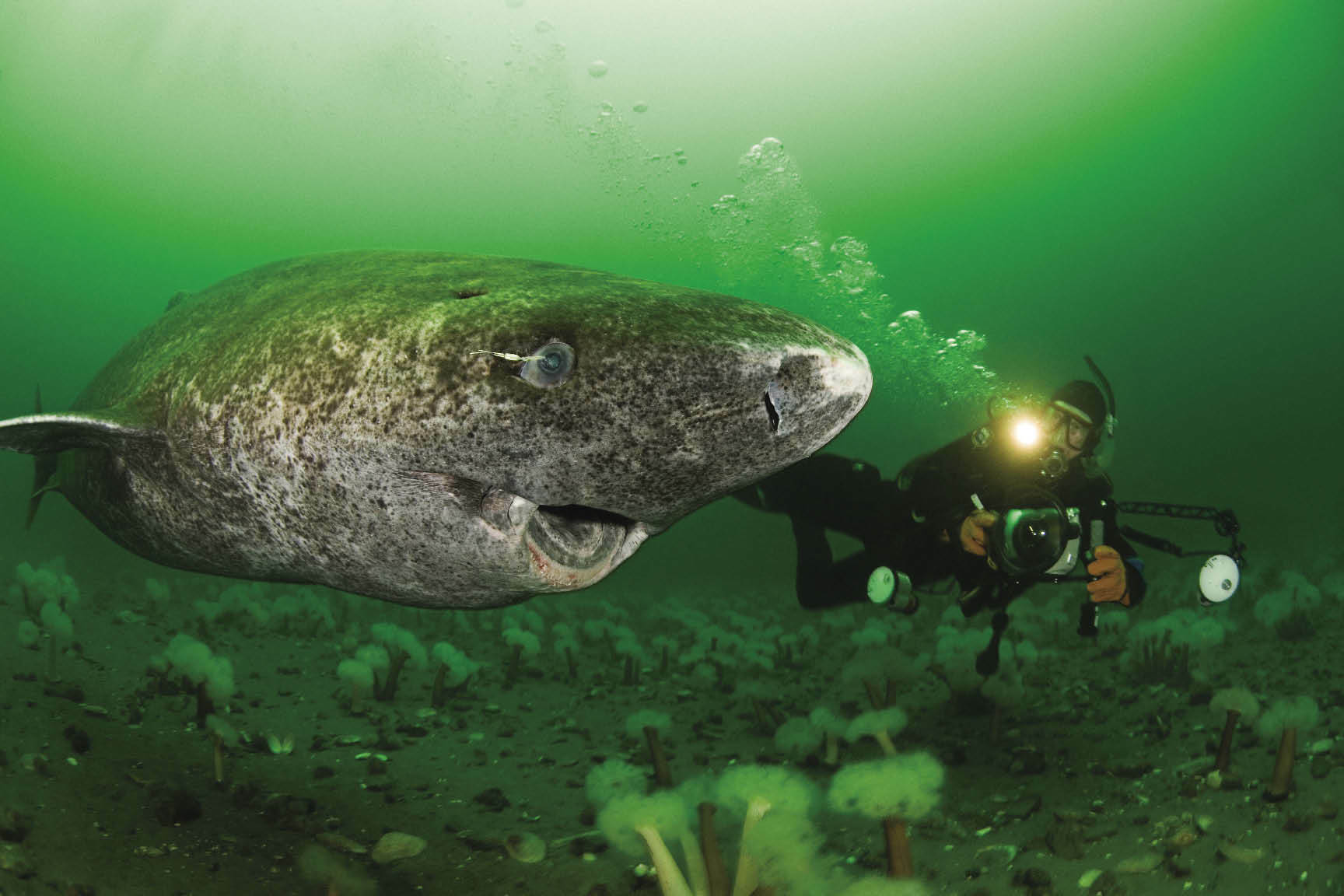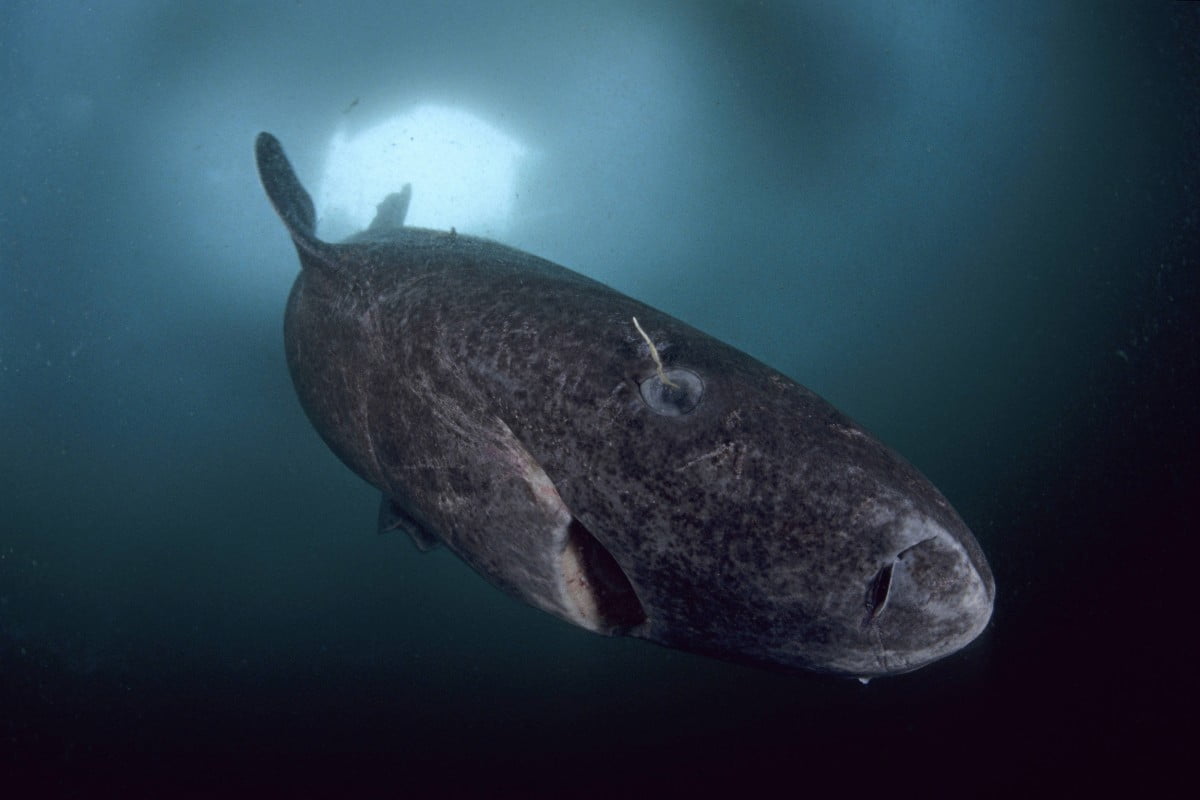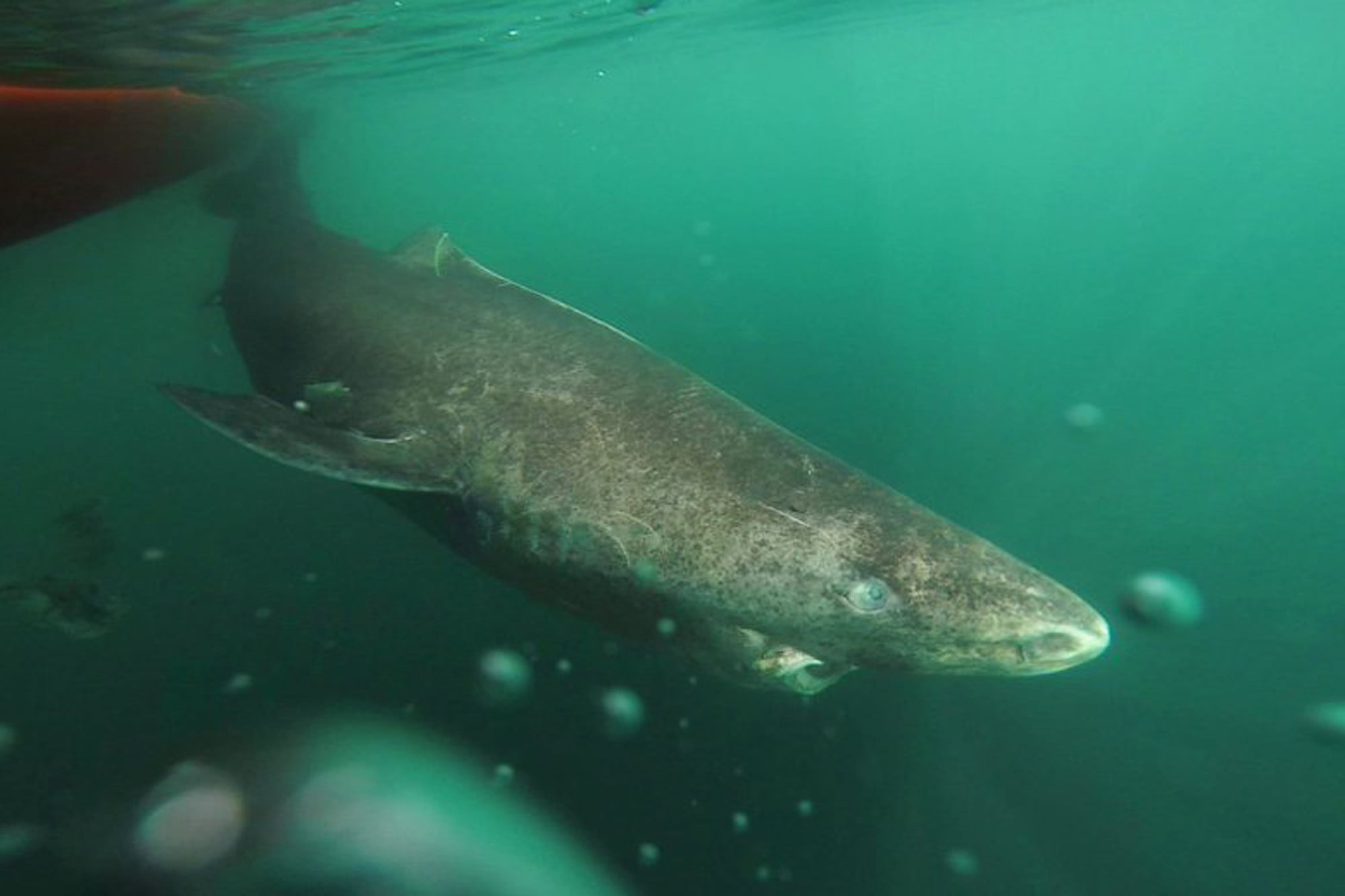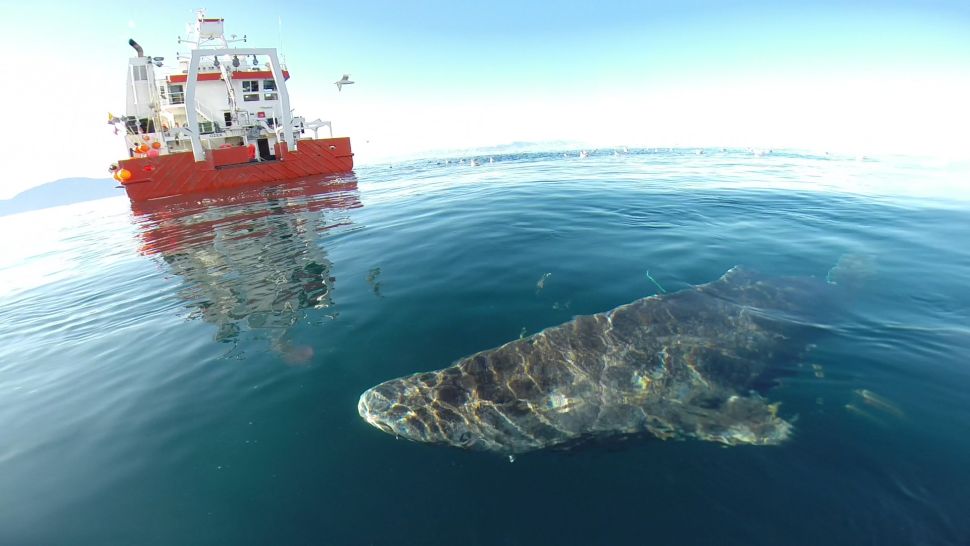Centuries Beneath the Waves: The Ancient Secrets of the Greenland Shark
Unveiling the depths of oceanic mysteries, scientists have made a remarkable discovery that sheds light on one of the Earth’s longest-living vertebrates – the Greenland shark. Through meticulous radiocarbon dating of eye proteins, researchers unveiled the astonishing age of these majestic creatures, revealing that a female Greenland shark had likely lived for an astounding 400 years. This finding propels the Greenland shark to the forefront as the longest-living vertebrate on our planet, surpassing even the venerable bowhead whale, which was previously the record-holder at 211 years.
Marine biologist Julius Nielsen, hailing from the University of Copenhagen and the lead author of the study, expressed the surprise shared by the research team: “We had our expectations that we were dealing with an unusual animal, but I think everyone doing this research was very surprised to learn the sharks were as old as they were.”
These slow-moving giants, known as “sleeper sharks” due to their sluggish pace, navigate the frigid waters of the Arctic and the North Atlantic. Despite their massive size, reaching up to 5 meters in length, these creatures grow at an incredibly slow rate of merely 1 centimeter per year. The Greenland sharks’ journey towards sexual maturity is equally prolonged; they only attain this milestone when they reach 4 meters in length, which, considering their potential age of up to 400 years, could take approximately 150 years to achieve.
The research hinged on the unique radiocarbon levels present in the eye tissue of these ancient creatures. Abundant radiocarbon from atmospheric thermonuclear weapons tests in the 1960s allowed scientists to ascertain the ages of the sharks with a high degree of accuracy. The sharks with elevated radiocarbon levels were deemed to be less than 50 years old, while those with lower levels were estimated to be over 50 years.
Drawing from their size and growth rate data, the researchers estimated that these sharks could be at least 272 years old, potentially reaching an astonishing age of 512 years, with the most probable age being around 390 years.
The Greenland shark’s remarkable longevity can be attributed to their remarkably slow metabolism, combined with their preferred habitat of icy waters. Their torpid pace earned them the moniker “sleeper sharks,” even though they’ve been found with seal remains in their stomachs. The sluggish nature of these predators suggests that they may have consumed these seals while the prey were either already deceased or during their slumber.
The lives of these ancient giants beneath the waves serve as a poignant reminder of the wondrous and mysterious world that our oceans hold. The Greenland sharks, with their centuries-long journeys through frigid waters, remind us that in the vastness of the deep, time takes on a different dimension, offering a glimpse into the mysteries of life that flourish beneath the surface.
Hits: 0









